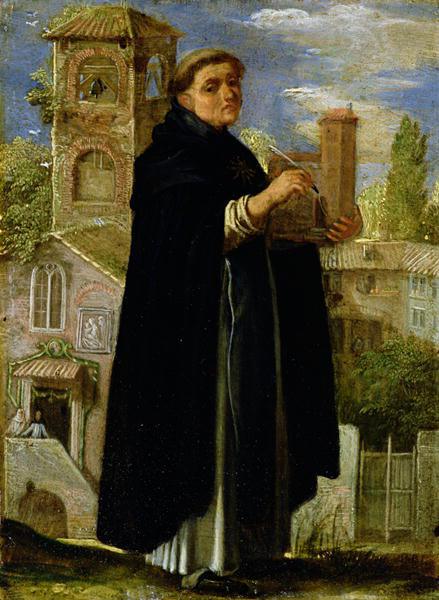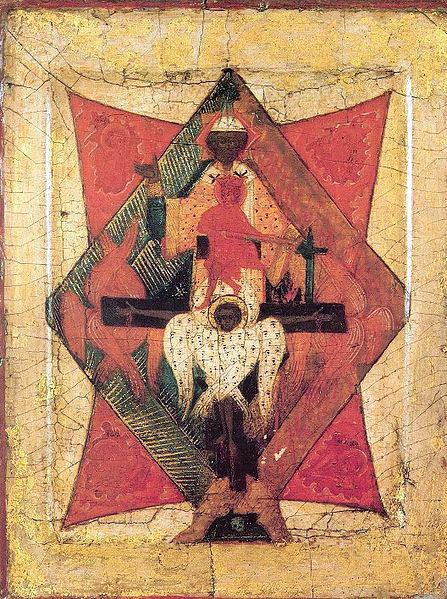‘contemplation is the soul’s free and clear dwelling upon the object of its gaze’. (Aquinas)
Three things are required for contemplation. First, the ordering of the corrupt affections, which ordering is a certain disposition towards contemplation, and this is had through the moral virtues. So the wings are moral virtues, such as patience and humility etc…Another wing is charity which greatly helps one to fly to contemplation…Another wing is wisdom, and by the wings of wisdom, truth is contemplated, for without these wings, one is easily taken into errors if divine things are contemplated…(Aquinas)
…Super Psalmos, the image of ‘wings’ occurs a number of times and most memorably, perhaps, when Thomas is referring to the power of Christ’s protection. Thus, commenting on the phrase Protect me under the shadow of your wings, he writes: ‘The two wings are the two arms of Christ extended on the cross’….
Now shade protects us from heat, just as God’s care refreshes us with safety. Like wise a hen protects her chicks in her wings against a bird of prey, just as God defends the just from the rapacity of the demons in his wings, which are charity and mercy. How often I wanted to gather you just as a hen gathers her chicks under her wings, and you would not. Mt. 23.37…
The actual life of contemplation, evoked by the phrase ‘contemplata aliis tradere’, is a way of life that can hope to survive and flourish only if it is able enjoy a serene, meditative environment….Those who ‘take flight’ in contemplation, and in particular those who make great progress in prayer, are not men and women of a complacent and self-satisfied disposition. No, the opposite is the case. Commenting on the text, This poor man called and the Lord heard him, (Psalm 33), Thomas (Aquinas) observes that the individual, in this case, was manifestly ‘poor in spirit (anawim), or poor in that way, or poor in earthly desires’. And it is men and women who are poor in that way, Thomas insists, whose prayer has real merit in the end, and who, because they cry out ‘with the intensity of interior desire’ find their prayers answered by God.
To me, poor wretch,
Come quickly, Lord!
My helper, my savior, my God,
Come and do not delay!
These lines of manifest poverty of spirit, and intense longing, comprise the short stanza which concludes Psalm 39. The Dominican Master, instead of simply commenting on the lines, expresses something of their meaning in his own direct and simple prose:
I am asking everything because by myself I am not able to do anything since I am a beggar…A beggar is someone who seeks from another what he needs to live, while a poor man is someone who has not enough for himself…I must out of necessity, therefore, beg God for the help of his grace. I am also a poor man, and what I possess is not enough for me. Because I recognize this, the Lord takes care of me. And, because I am needy, You, Lord, are my help. And, because of danger, Do not delay! Lord, come to my aid!
–Paul Murray OP ‘Aquinas at Prayer: The Bible, Mysticism and Poetry’



